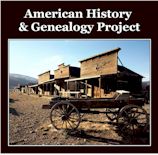 |
Eastland |
 |
 |
Eastland |
 |
In War Times
|
In 1861 news did not travel fast in Eastland County, for it lay on the very border land of civilization, with its three or four scattered settlements. Recruiting agents went where some degree of success might attend their patriotic efforts, and it was not until 1864 that men in this section were called upon to bear arms. It was not from a desire on the part of the Government to make every man feel the burden of war that the frontiersmen was impressed, or even that he might take part in the civil strife caused by the black man, but he was called upon to repel systematically the invasions of the red man. Prior to 1868, Eastland, Shackelford and Callahan Counties were under the jurisdiction of Comanche County. After this date Eastland was attached to Palo Pinto. At every meeting of the Legislature laws were passed for the protection of the frontier. They were adhered to as closely as the conditions and times would permit, and that was all the law required. About the 1st of February, 1864, Eastland was organized under the Conscription for military purposes. Forty men were required to form a company, and at that time it took every man between the ages of eighteen and forty-five in the Counties of Eastland, Shackelford and Callahan to muster the required number. Think of the rich fields of corn and cotton and grain that thrive in our County today; of the handsome and substantial houses that dot its surface; of the many beautiful churches, school houses, public buildings, and of the whirring machinery; of the eighteen to twenty towns with their three hundred to three thousand in habitants; then, in imagination, wipe out all these farms and houses and towns; fill the primeval forests and prairies, without a vestige of a shack of any kind, with the snarling, hungry animals, and the fiendish, treacherous Indians, and you have a picture of the territory traversed by those early guardians of our country. Flannaganís Ranch, McGough Springs and Jewell marked the western limit of the white manís tread in Eastland in 1864. The following roster was furnished by T. E. Keith, who joined the Company as soon as he was eighteen years old: Sing Gilbert, First Lieutenant J. B. McGough, Second Lieutenant. J. L. Head, Sergeant. H. York, Corporal. Privates: W. N. Arthur, Thomas Mansker, James Stubblefield, J. B. Smith, John Temples, James Temples, John Ward, Frank Caddenhead, Tom Caddenhead, *Ike Ward, C. C. Blair, J. M. Ellison, S. C. Shirley, W. C. McGough. Joe Henshaw, Gabriel Keith, B. M. Keith, G. B. Ely, Sam Gilbert, Tom Gilbert, James Gilbert, Jasper Gilbert, Taylor Gilbert, Joseph Dudley, William Fisher, J. J. Keith, J. M. York. As three of these men lived in Comanche County, Joseph Dudley, William Fisher and S. C. Shirley, there were, really, only twenty-eight mien in Eastland. A few months after the organization of this company, however, all the available citizens of Callahan and Shackelford Counties were added to it, making the required forty, and First Lieutenant Gilbert was made Captain, J. B. McGough, First Lieutenant, and N. H. Kuykendall. Second Lieutenant. The Company was divided into three squads, and each man was required to serve ten days out of thirty. The starting place was Nashís Spring, half way between McGough Springs and Jewell, and the incoming scout was always met by the outgoing squad, thus keeping a lookout committee continuously on duty. Several days after Lee's surrender a detachment of Gilbert's Company arrived at Blair's Fort. There they received the sad news from Lewis Keith, who had just returned from Louisiana, and the Company disbanded. When the danger of being "pressed" into the Confederate Army had passed, it is said that at least one third of the men in Eastland County moved back across the Brazos River. That this was a fact, the census of 1870 proves, as the entire population numbered only eighty-eight. The only wonder is that any remained, as there was no Government protection at all until the next Legislature met. All honor to the brave men and women who still possessed their homes and held the line of civilization in Eastland! All honor to the gray hairs of those who fought for her in those perilous times, and who still live among us! Eternal honors be to the glorious manhood and womanhood that creates pioneers! Footnotes: 1. Chapter 36, Section 3, General laws of the Tenth Legislature reads: "That the commissioned officers of each company of fifty men or more shall consist of a Captain and two Lieutenants; if less than fifty men, two Lieutenants," etc. However, the spirit of the law was met in these frontier counties. 2. It was not known until after the war closed that four or five of these men were deserters from the army. Ike Ward was arrested during the war, taken to Arkansas, court marshaled and shot as a deserter. Source: History of Eastland County, Texas, by Mrs. George Langston, A. D. Aldridge & Company, Dallas, Texas, 1904.
|